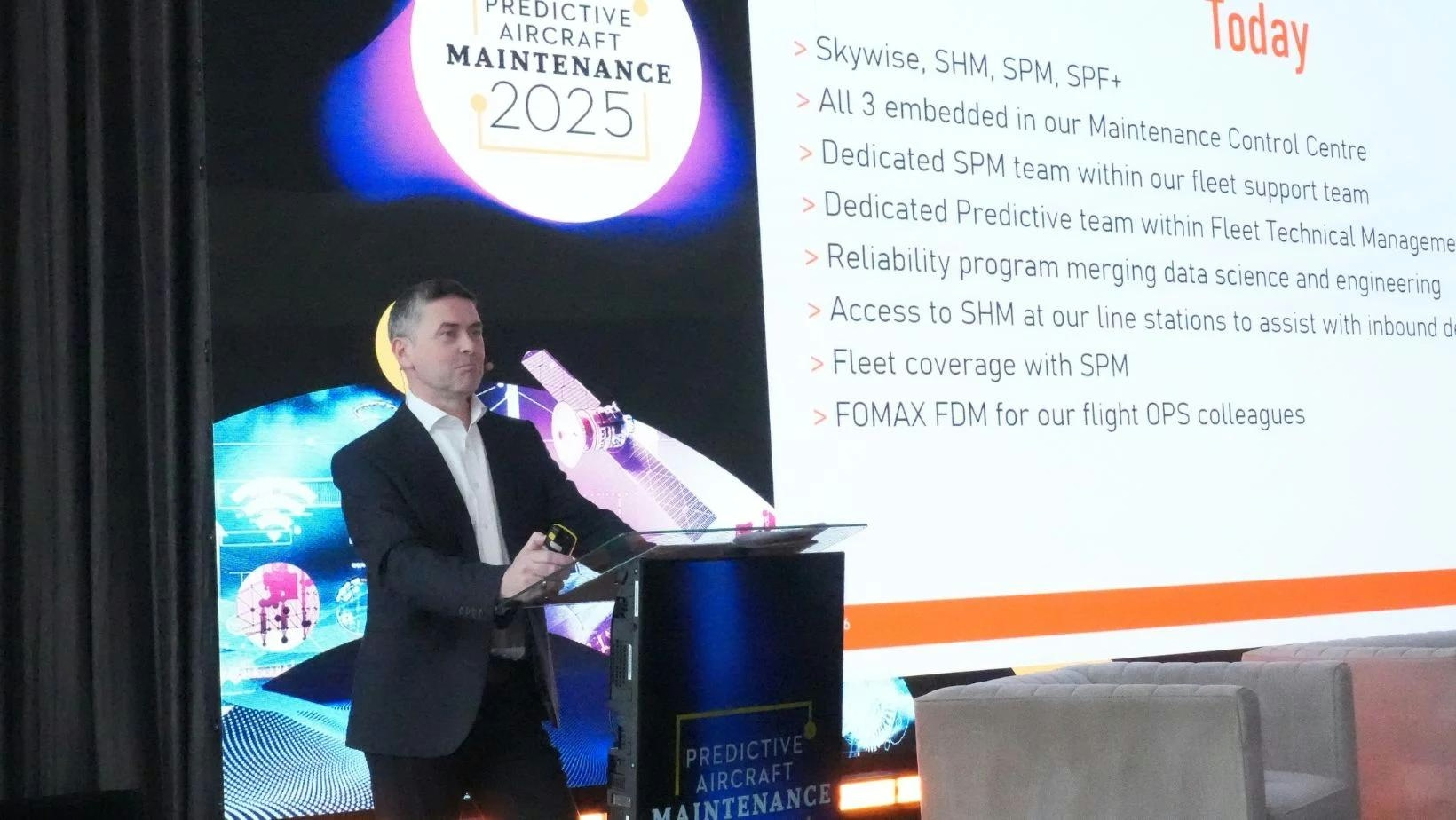AeroGenie — Tu copiloto inteligente.
Tendencias
Categories
easyJet Highlights Reliability Improvements Ahead of PAM Dublin 2025

easyJet Highlights Reliability Improvements Ahead of PAM Dublin 2025
Advancements in Predictive Maintenance
At the recent PAM Dublin 2025 conference, easyJet showcased notable progress in fleet reliability and operational efficiency, attributing these gains to its sophisticated predictive maintenance programme. Speaking to over 250 industry delegates, Aidan Kearney, easyJet’s head of maintenance operations, outlined the airline’s evolution from a traditional reactive maintenance model to a proactive, data-driven system. This transition has yielded significant improvements in aircraft availability, reliability, and manpower utilization across its 350-aircraft fleet.
Kearney traced the airline’s journey back to 2014, when easyJet identified the limitations of conventional maintenance approaches that failed to anticipate component failures or enhance reliability. The airline’s objective became clear: to analyse in-flight aircraft component behaviour using existing sensor data, applying algorithms informed by engineering design parameters, original equipment manufacturer (OEM) tolerances, and operator feedback to detect potential faults before they manifest. He emphasized that the true value of data lies not in its volume but in its purposeful application, stating, “If you don’t know what to do with it, then it is pointless—purpose is everything when it comes to harvesting and using data.”
The airline’s predictive maintenance efforts accelerated in 2015 following an Airbus study that demonstrated the feasibility of forecasting faults ahead of traditional alerts. By 2016, easyJet was trialling data capture on 80 aircraft, progressing to extensive testing that helped prevent aircraft-on-ground (AOG) incidents at early stages. The introduction of automated alerts in 2017 and a strategic partnership with Airbus in 2018 enabled the rapid deployment of FOMAX technology across the fleet. Currently, easyJet operates 22 live Skywise SPM models, with 60 additional models in calibration, integrating Skywise, SHM, SPM, and SPF+ into a comprehensive predictive maintenance ecosystem within its Maintenance Control Centre.
Between January 2019 and September 2025, this approach has helped easyJet avoid 171 major delays, 662 minor delays, and 1,343 cancellations. Despite fleet growth, the airline has maintained high operational standards, reporting availability at 98.63% and technical dispatch reliability at 99.57%. Kearney highlighted that improved reporting and oversight of both insourced and outsourced maintenance have deepened the airline’s understanding of its fleet, enabling more sophisticated contracts and more efficient use of engineering manpower, which he described as “the most precious resource in engineering.”
Industry Context and Future Outlook
These advancements come amid increasing operational challenges within the European airline sector. Competitors such as Wizz Air are revising expansion plans in response to aircraft groundings and Airbus delivery delays, while Cebu Pacific continues to face engine reliability issues expected to persist until 2028. Wizz Air is also pursuing cost efficiencies by establishing new bases in Central and Eastern Europe, targeting financial benefits from 2027 onwards. In this competitive environment, easyJet’s enhanced reliability positions the airline to better navigate ongoing disruptions and maintain operational resilience.
Looking forward, Kearney emphasized the continued importance of predictive maintenance in easyJet’s strategy, noting the integration of engineering expertise with data science as a key driver of future gains. He urged the industry to embrace innovation and agility, warning that failure to adapt would jeopardize long-term viability. “If you fail to innovate, you will ultimately fail as an industry—you need to move with the times,” he concluded.

Emirates Unveils Cabin Design for New Boeing 777X

Eighteen Years On, the Airbus A380 Remains Central to a $34 Billion Airline

How a boom in luxury airline seats is slowing down jet deliveries

Navitaire Outage Attributed to Planned Maintenance

DigiYatra Debuts Outside Aviation at India AI Impact Summit

Vietnam Orders Strengthen Boeing’s Commercial Outlook

Airbus Signals Uncertainty Over Future A400M Orders

JobsOhio Awards $2 Million Grant to Hartzell Propeller for Innovation Center

Collins Aerospace Tests Sidekick Autonomy Software on YFQ-42A for U.S. Air Force CCA Program

How the Airbus A350-1000 Compares to the Boeing 777
